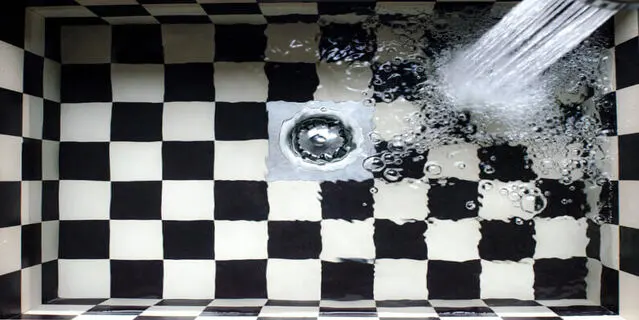
When dishes are piling up in the sink after a family dinner, it's tempting to just wash everything down the drain. Who wants to take the extra step of scraping things into the trash or compost bin?
No one - except, everyone should be. Your garbage disposal is misnamed. It should be called the "itty-bitty scraps of food disposal". If yours isn't working right now, you've probably learned the lesson of what not to put in a garbage disposal the hard way.
No worries - here's a list of what to avoid in the future and how to get your current problem fixed!
What Not to Put in a Garbage Disposal: The Mr. Rooter Guide
The best way to make sure you're not abusing your garbage disposal is to follow these two rules.
First, always scrape the majority of leftovers off your plate into the trash or compost. Getting large chunks and bones/scraps off your plate will save your disposal (and your wallet) in the long run.
Second, learn what not to put down the drain. If you have kids who do the dishes as chores, you may want to have them read this article, or put up a picture of what not to grind by the sink.
Here's what you should include on that list.
1. Bones and Pitts
Even the softest, most well-cooked, chicken bone that's been boiling in a soup pot for hours isn't soft enough to go down the drain. The same goes for other animal bones - including anything you'd give your dog.
Had a juicy peach? Throw that pit away, or better yet, throw it in the compost! It's too hard for the blades to chop up and could lead to blade damage or clogs.
A sneaky culprit plumbers see a lot in this category? Olive pits! They're easy to forget about when you pick them out of a salad or an antipasti plate and though they're small, they can still do impressive damage.
When it comes to texture, a good tip to remember is if you can't chew it - neither can your sink! This is a good way to have your garbage disposal stopped up.
2. Oil or Grease: Hot or Not!
If your family cooks meat products or bacon often, you most likely have a can of bacon grease in your fridge that you add to every time you fry something up. Ever wonder why you do that?
It's an old tradition that protects your disposal! Hot oil is dangerous for both you and your sink - it all goes back to basic chemistry. The majority of what goes down your pipes is water, and oil and water don't mix.
It's still not safe to put oil down the drain when it's cooled - which is why we recommend pouring it in a disposable container, waiting for it to solidify, and then throwing it out.
When you're cleaning out a pan that had oil or grease in it, try using a flat-sided spatula to get as much grease off the pan as possible before throwing it in the sink.
Your septic system will thank you!
3. Pasta or Rice
This one catches many people by surprise. They think to themselves, "it's so soft and small, what harm could it possibly do?" The answer to that question is, "more than you think".
Pasta, rice, and other grains that you boil in water expand when soaked, even after cooking. And not only that, but they get slimy and release more starch over time.
Even if you use your disposal to grind it up nicely (which you shouldn't), it's like sending every parent's worst nightmare - slime - down the drain.
Put it in the trash or compost where it belongs!
4. Skins and Peels
There's a reason that vegetables (and animals, for that matter) have such tough skin. It's to keep the good stuff in and the bad stuff out.
And those skins are tougher than you think! Chicken skin is both slimy, rubbery, and stringy, which puts it at risk of getting wrapped around the disposal blades.
Potato, apple, and carrot peels, for example, aren't safe either. Sure, they're less slimy, but they can get wrapped around the blades and cause a clog all the same.
We know it's more ergonomic to peel veggies over your sink, but try doing it over a bowl or the trash can next time for easy, damage-free, cleanup.
And - though it's misconstrued as a cleaning hack, you should not put citrus peels down your drain. Think about all the stringy parts that come off when you peel an orange (or would if you peeled a lemon the same way). Those fibers are thick and perfect for getting caught on disposal blades.
If your disposal smells, use a plumber approved disposal cleaner (or this DIY method) and make sure there are no items from the list above stuck in your drain.
Remember to always run your disposal with a fully-running faucet as well, those moving parts need lubrication!
Who to Call if Your Disposal isn't Working in Austin
The minute your disposal starts sounding strange, wait for it to stop spinning completely, check for these items yourself, and then call a plumber.
For what is essentially a system of spinning metal blades, your disposal is more delicate than you think. It's always best to have a certified Mr. Rooter professional come take a look - instead of just hoping the sound will go away.
You can call to schedule a service here - and remember, if it's on this list of what not to put in a garbage disposal or if you have to think twice - throw it away!

